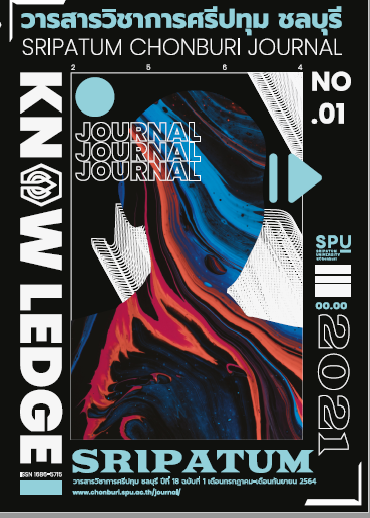FOLKlORE: MIXED RICE IN YALA CITY, DEEP SOUTH OF THAILAND
Keywords:
folkiore, misxed rice, yala cityAbstract
The present folklore-based article aims to investigate Khao Yam ( mixed rice, the deep south of Thailand traditional cuisine). It was found that Khao Yam of Yala city is based on the local creative folk wisdom, particularly, Yala city, where original Khao Yam recipe has long been preserved and adjusted to be accepted by new generations. In the past, Khao Yam was prepared only in the families. Until, it later becomes a business. The benefit from this study was to realize the involvement of all folklore elements including local entrepreneurs, customers and raw materials suppliers. The ingredients sources can be found within Yala city and neighboring provinces. Some of the process of preparing, recipe and the methods has been modernized, it, however still represents its own local identity. Roles and functions of other communities are the roles of the venders who influence other communities’ opinions and acts to learn, purchase, produce and the process of knowledge transfer through verbal and non-verbal “Folklore”: The study of Khao Yam, Yala city, the deep southern province of Thailand is the study of the local food culture reflecting ways of life of the locals who are deserved to be valued and proud of being people in Yala city, deep southern people and Thai people.
References
บทความ/๔๑๘-บอกเล่าเรื่องราว-ข้าวยำสมุนไพร-ประโยชน์คู่คนใต้/ [2564, 18 กุมภาพันธ์].
เครื่องข้าวยำสำเร็จรูป (ออนไลน์). (ม.ป.ป.). เข้าถึงได้จาก: https://www.google.com//search? [2564, 14 มกราคม].
ฐานข้อมูลท้องถิ่นภาคใต้ มหาวิทยาลัยสงขลานครินทร์. (2561). ข้าวยำ (spicy rice salad with vegetable)
(ออนไลน์). เข้าถึงได้จาก: https://clib.psu.ac.th/southerninfo/content/5/6cb10808 [2564, 21 มกราคม].
ดินาร์ บุญธรรม. (2557). ข้าวยำปักษ์ใต้ (ออนไลน์). เข้าถึงได้จาก: http://www.thaistudies.chula.ac.th/
2018/12/26/%E0%B8%82%E0%B9%89%E0%B8%B2%E0%B8%A7%E0%B8% A2%E0%
B8%B3%E0%B8%9B%E0%B8%B1%E0%B8%81%E0%B8%A9%E0%B9%8C%E0%B9%
83%E0%B8%95%E0%B9%89/ [2564, 14 มกราคม].
ประกอบ รักแก้ว. (2564, 31 มกราคม). แม่ค้าขายข้าวยำ. สัมภาษณ์.
ภิญโญ เวชโช. (2561). คติชนวิทยา. ยะลา: ศูนย์ส่งเสริมการทำผลงานวิชาการ มหาวิทยาลัยราชภัฏยะลา.
สมศรี เจริญเกียรติกุล. (2554). ตำรับอาหารไทย: ข้าวยำ (ออนไลน์). เข้าถึงได้จาก:
http://www.inmu.mahidol.ac.th/gallery/inmucooking/South_food/%E0% B8%82%
E0%B9%89%E0%B8%B2%E0%B8%A7%E0%B8%A2%E0%B8%B3.html
[2564, 18 กุมภาพันธ์].
สำนักงานวัฒนธรรมจังหวัดยะลา. (ม.ป.ป.). ประวัติจังหวัดยะลา (ออนไลน์). เข้าถึงได้จาก:
http://www.yala.go.th/history [2564, 19 กุมภาพันธ์].
สุรีรัตน์ นิจอภัย. (2564, 6 กุมภาพันธ์). แม่ค้าขายข้าวยำ. สัมภาษณ์.
อรนิช พลีตา. (ม.ป.ป.). ประวัติข้าวยำต้นตำรับชาววัง (ออนไลน์). เข้าถึงได้จาก:
https://sites.google.com/site/khawyatntarabchawwang/prawati-khawya-tn-tarab-chawwang
[2564, 14 มกราคม].
Downloads
Published
Issue
Section
License
บทความทุกบทความเป็นลิขสิทธิ์ของวารสารวิชาการศรีปทุม ชลบุรี



